Review for The Flower of Gloster – The Complete Series
In some ways I wish that I could say that I saw this on its original airing in 1967. I didn’t, possibly because I would have been a mere five or six year’s old at the time. If I had, then I could have enjoyed this through the joyous lens of nostalgia as, for many, this will be the first chance to enjoy the series since that time, fifty years ago. On the other hand, seeing it for the first time was an incredibly joyous experience too. To say ‘they just don’t make ‘em like this anymore’ would be a sizable understatement. I’m not sure they ever did make ‘em like this. Perhaps ‘The Duke of Gloster’ is a one off. Whatever the case, its mix of genuine documentary and fun drama, as well as its loose location filmed style (hand held 16mm, a boom mic and a portable Nagra) make it an incredible series – a time capsule in every sense.
It was notable for being the first Granada TV series to be filmed in colour (though no one would have seen in broadcast that way), produced by none other than Bill Grundy, perhaps more famous today for inciting the Sex Pistols into swearing whilst on live TV in 1977, which cost him his job. A decade earlier, it was he who instigated this wonderful series which set out to capture the traditions of Britain’s canal workers before they disappeared forever. Educating and entertaining were all part of the broadcasters’ charter back in the day and this series managed the almost impossible by achieving both. Grundy claimed to have got the idea after visiting a rally near his home in Marple.
‘The Flower of Gloster’ is a 1911 book by E. Temple Thurston (September 23, 1879 – March 19, 1933), an Anglo-Irish poet, playwright and author and was somewhat a study of canal traditions. The series is only loosely based on that, and is set in contemporary (1967) Britain.
The series featured a 72 foot long, traditional wooden narrow boat, ‘The Flower of Gloster’ (yes – that spelling is never explained) which is a converted canal barge, perhaps once used for transporting coal, but now a sizable, if narrow, home. During its journey, we see at least one working family still transporting coal in the bulk of the vessel, whilst housing a family of five in the rear 12ft; remarkable but true.
It’s been converted at a boathouse in Wales and has been sold to a buyer in London – if it’s delivered within two weeks. If it fails to arrive the deal is off and the money is much needed by the family involved in its conversion. However, just before it is to set off, there is an accident whilst the engine is lowered into the boat by crane and the Father of the family breaks his leg. So now it’s up to the oldest son (Dick) to skipper the boat (rather than assist as intended) and for the 12-year-old daughter (Elizabeth) to assist. They are joined later by the youngest son (ten-year-old Michael) who follows the boat on his bike and is eventually allowed to join the crew.
Dick is played enthusiastically by a young Richard O'Callaghan (later, a Jim Dale replacement in the latter Carry On film series), a professional actor of some repute, though his younger brother and sister are played by newcomers and real-life siblings Elizabeth and Mike Doherty. Apart from a girl about Dick’s age, picked up on route when Michael inadvertently steers the boat into her dinghy in a lock, nearly drowning her, played by popular actress Annette Robertson (A Kind of Loving; Cliff Richard vehicle ‘The Young Ones’), the remaining cast are all ‘real people’. This is pretty evident with some incredibly stilted conversation bravely prompted by Callaghan in the main.
The series seems to have a fair bit of ad-libbing, padding out a straight-forward road-trip narrative. Like many episodic ‘journey’ stories, it’s highly addictive. I found myself binge-watching in a way I rarely do for such series, anxious to get to the next (very enjoyable) episode.
There are moments of real adventure and tension along the way, including a number of moments when the boat gets stranded (once aside a haunted wood late at night) which make for exciting viewing, and the race against the clock adds a peculiar tension to an otherwise fairly relaxed show.
Much of the series’ magic comes from the stories of the canal folk themselves and the long traditions of narrow boating, stretching back centuries. As a result we see the ‘Gloster’ being pulled along the canal by a Shire Horse, just as was the way a century previous, and we also see the crew having to adopt a technique of travelling through a tunnel (when they run out of fuel) whereby they lie on their backs and effectively ‘walk’ the boat through – just as was done in years gone by.
The loose, hand held 16mm footage can occasionally look a little ragged, and the dialogue occasionally stilted, and the editing occasionally a bit bizarre but this lack of contemporary slickness merely adds to the show’s charm.
All 13 episodes (27 minutes each) are spread across two discs with no extra features. Picture quality is very reasonable given the show’s vintage.
The series was thought all but lost by some but Network have managed to locate all episodes; even more remarkably in colour. They really are such a treat to see. I thoroughly recommend it to anyone with an interest in vintage children’s television and / or a history of Britain’s myriad canals. Excellent stuff!
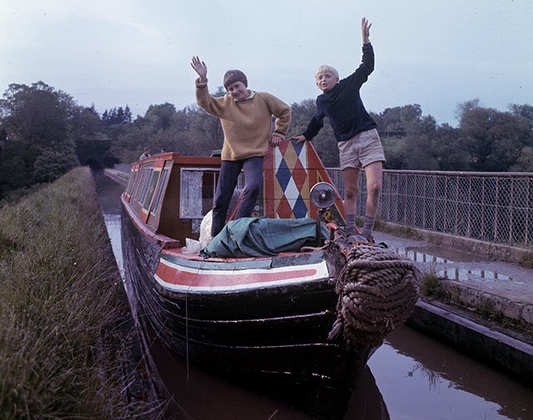
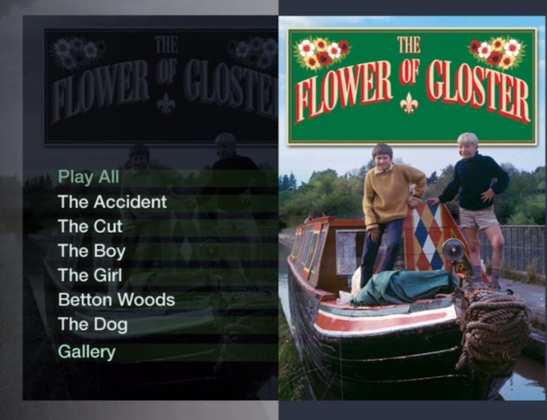
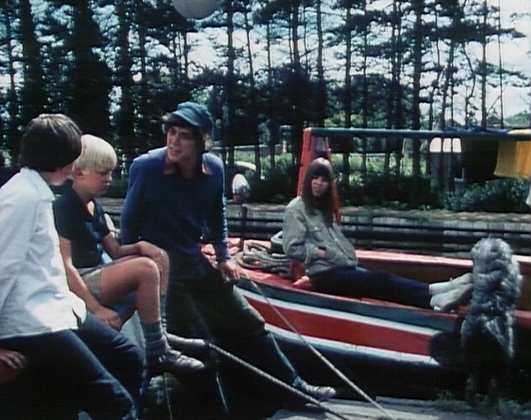
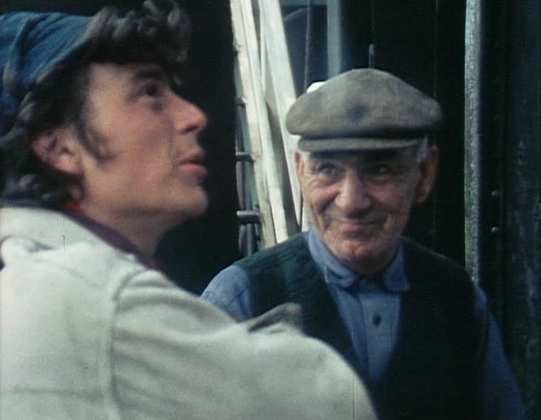
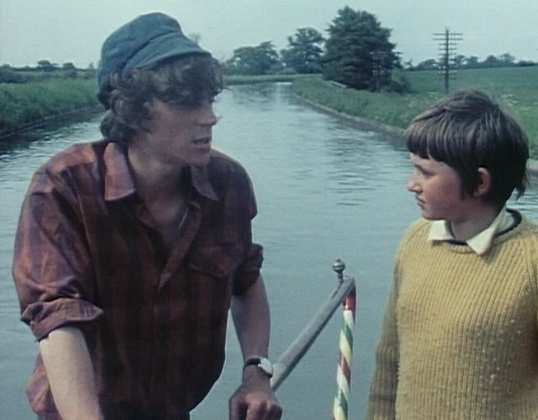
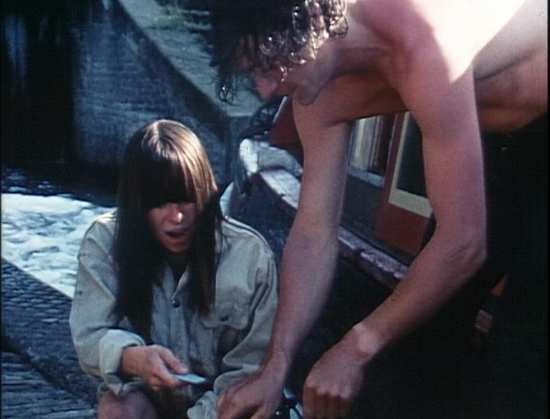
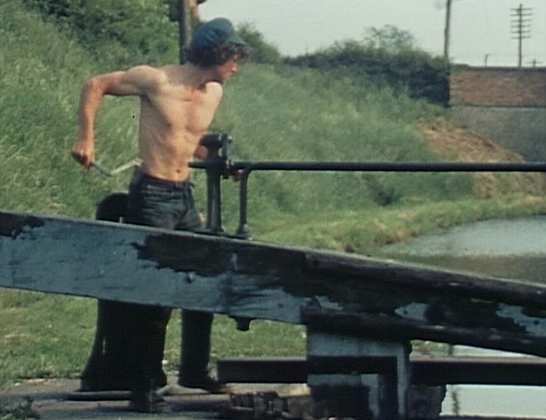
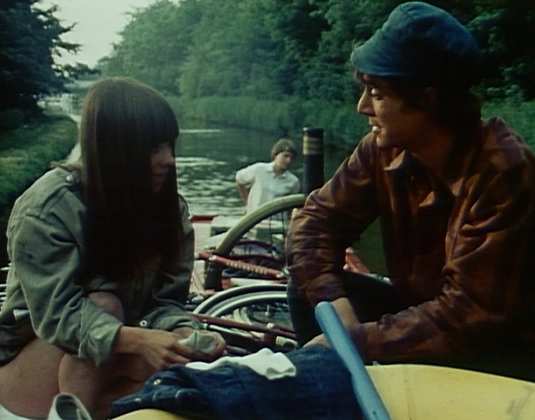
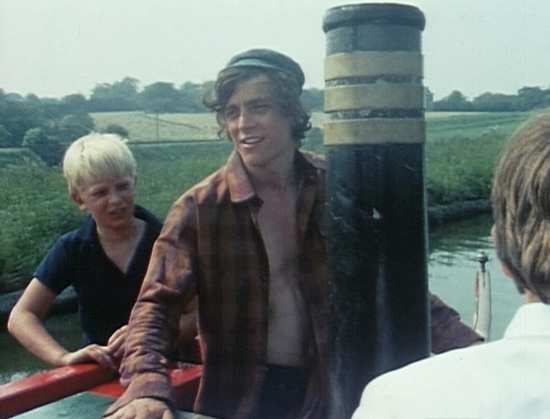
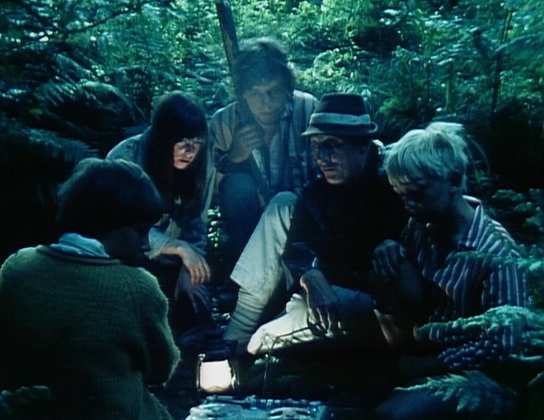
Your Opinions and Comments
Be the first to post a comment!